Ursocol 150
Ursocol 150 is a biliary agent (also known as a gallstone dissolving agent) that is used to treat gallstones, primary biliary cholangitis (a liver autoimmune disease), high cholesterol in bile, and children over the age of 6 with biliary and liver illnesses caused by cystic fibrosis.
Ursocol 150 contains ursodeoxycholic acid, a bile acid that occurs naturally. Ursocol 150 aids in the reduction of cholesterol synthesis in the blood, consequently dissolving cholesterol-based gall bladder stones. Ursocol 150 protects liver cells from damage caused by harmful bile acids while also improving liver function.
Ursocol 150 should be taken with food. Do not chew or crush Ursocol 150; instead, swallow it whole with a glass of water. Depending on your medical condition, you should take Ursocol 150 for as long as your doctor has prescribed it. Certain typical adverse effects, such as abdominal discomfort, abdominal pain, diarrhea, nausea, rash, dizziness, indigestion, and weakness, may occur in some circumstances. The majority of these adverse effects do not necessitate medical treatment and will subside with time. However, if you are experiencing these adverse effects on a regular basis, you should consult your doctor.
Ursocol 150 should not be stopped without first consulting your doctor. Continue taking Ursocol 150 for as long as it is suggested to effectively treat your disease. If you have variceal hemorrhage (high blood pressure in portal veins), ascites (excess abdominal fluid), liver encephalopathy, or liver disease, tell your doctor before using Ursocol 150. If you’re pregnant or breastfeeding, don’t take Ursocol 150 unless your doctor tells you to. If prescribed by a doctor, Ursocol 150 can be administered to children over the age of six. Avoid drinking alcohol while taking Ursocol 150 because it might cause sleepiness and liver damage. To rule out any negative effects, keep your doctor updated about your health condition and medications.
Gall stones, primary biliary cholangitis, and biliary and liver illnesses caused by cystic fibrosis are all treated with Ursocol 150.
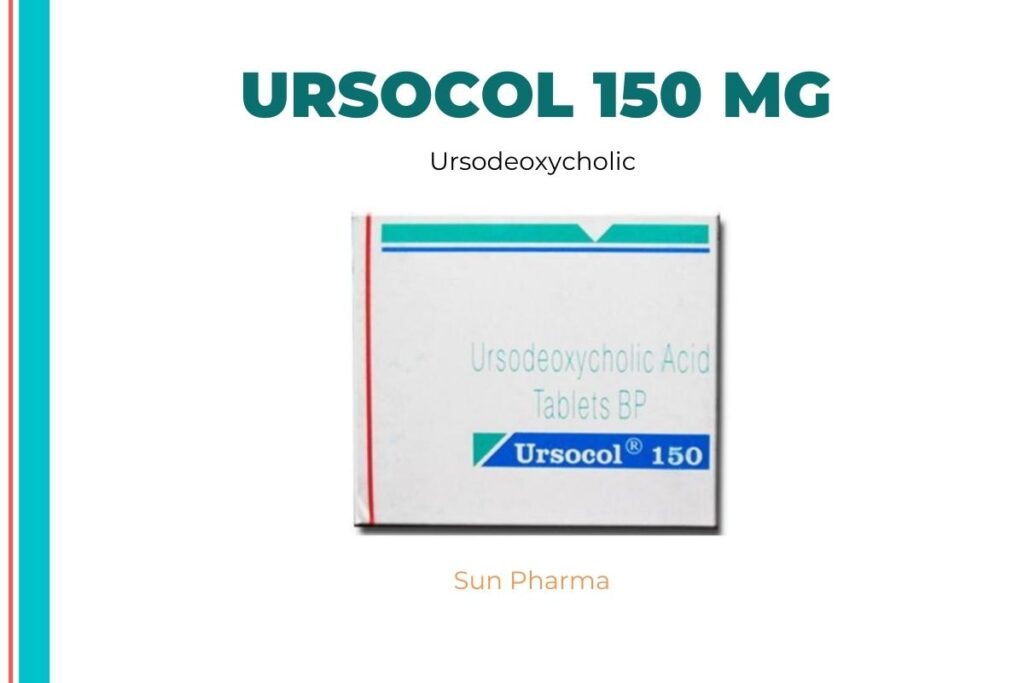
Medicinal Advantages
Ursocol 150 contains ursodeoxycholic acid, a bile acid that occurs naturally. It belongs to a class of drugs known as biliary agents or gall stone dissolving agents, which are used to treat gall stones, primary biliary cholangitis (a liver autoimmune disease), and excess cholesterol in bile in children over the age of six who have biliary and liver diseases caused by cystic fibrosis. Ursocol 150 removes gall bladder stones by breaking down cholesterol that has accumulated into them. Ursocol 150 has a protective impact on liver cells as well as the immune system, which improves liver function. Ursocol 150 inhibits the liver’s production of cholesterol and its absorption into the gut. Ursocol 150 improves bile flow in patients with primary biliary cirrhosis.
Use Instructions
Ursocol 150 should be taken with food. Do not chew or crush Ursocol 150; instead, swallow it whole with a glass of water. Your doctor will determine how long you should take Ursocol 150 based on your medical condition.
Store in a cool, dry location away from direct sunlight.
Ursocol 150 Side Effects
Ursocol 150, like all drugs, can produce adverse effects, though not everyone gets them. Ursocol 150 is known to cause stomach pain, diarrhea, nausea, fever, and cough, as well as rash, dizziness, indigestion, black or tarry stools, frequent and painful urination, and weakness. If you encounter any of these adverse effects on a regular basis, please see your doctor.
Drug Recommendations
If you have inflammation of the gall bladder and bile ducts, narrowing or blockage of the bile ducts, biliary colic, hardened gallstones, incorrect constriction of the gallbladder, or a stomach or duodenal ulcer, do not take Ursodeoxycholic. If you have variceal hemorrhage (high blood pressure in portal veins), ascites (excess abdominal fluid), liver encephalopathy, or liver disease, tell your doctor before using Ursodeoxycholic. Ursodeoxycholic may reduce the absorption of antibiotics (ciprofloxacin and dapsone) and antihypertensive agents (nitrendipine), increase the effect of immunosuppressants (cyclosporine), oral contraceptives (oestrogen), and cholesterol-lowering agents (clofibrate), and promote the formation of gallstones. Consult your doctor before taking Ursodeoxycholic with other medicines. If you’re pregnant or breastfeeding, don’t take Ursodeoxycholic unless your doctor tells you to. If prescribed by a doctor, ursodeoxycholic can be administered to children over the age of six. Avoid drinking alcohol while taking Ursodeoxycholic because it can cause sleepiness and liver damage. To rule out any unpleasant side effects, keep your doctor informed about your health condition and medications.
Interactions Between Drugs
Interactions between drugs: Antibiotics (ciprofloxacin and dapsone), antihypertensive medicines (nitrendipine), immunosuppressants (cyclosporine), hormones (oestrogen), and antacids may interact with ursodeoxycholic (aluminum hydroxide, aluminum carbonate, magaldrate).
No food-drug interactions have been discovered or established.
Ursodeoxycholic may interact with biliary blockage and liver damage, variceal hemorrhage (high blood pressure in portal veins), ascites (abdominal fluid retention), and liver encephalopathy.
Safety Suggestions
ALCOHOL
Alcohol should be avoided when using Ursodeoxycholic since it might induce dizziness and liver damage.
PREGNANCY
Ursodeoxycholic is classified as a pregnancy category B substance. If you have any concerns, please consult your doctor; your doctor will only prescribe if the benefits outweigh the risks.
BREAST FEEDING
Before using Ursodeoxycholic, see your doctor; your doctor will determine whether or not Ursodeoxycholic can be taken by breastfeeding moms.
DRIVING
Ursodeoxycholic has no effect on your driving skills. However, if you experience dizziness while driving, you should exercise caution.
LIVER
In patients with liver disease, dose adjustments may be necessary. If you have any worries about this or if you have a liver problem, please visit your doctor.
KIDNEY
In patients with kidney disease, dose adjustments may be necessary. If you have any worries about this or if you have kidney impairment, please visit your doctor.
No habit formation
Advice on Diet and Lifestyle
Bell peppers, citrus fruits, green vegetables, tomatoes, milk, fish, low-fat dairy, beans, nuts, lentils, tofu, and tempeh are examples of foods to include in your diet.
Consume a nutritious, well-balanced diet rich in fruits and vegetables.
Vitamin B, C, and calcium-rich foods are beneficial to the gallbladder.
Beans, almonds, lentils, tofu, and tempeh are examples of plant-based protein sources that can help avoid gallbladder disease.
High-fat, trans-fat, and processed foods should be avoided.
Sugars, white bread, and white pasta should all be avoided.
Tobacco and alcohol intake should be avoided.
Recommendations
Regular liver function tests may be recommended by your doctor to check the liver’s function and treatment progress.
Ursodeoxycholic can cause hair thinning and loss in some people; if you’re losing a lot of hair, talk to your doctor.
Additional Information: This item is non-refundable.
Glossary of Diseases and Conditions
Primary biliary cholangitis (formerly known as primary biliary cirrhosis) is an autoimmune illness caused by damage to the liver’s bile ducts. Bile ducts are small tubes that transport bile (digestive fluid) from the liver to the small intestine, where it breaks down lipids and promotes absorption. Biliary cirrhosis is a condition in which bile builds up in the liver, causing damage to the organ.
Gallbladder stones: The gallbladder is a tiny organ beneath the liver that stores bile, a digestive aid. Gallstones form when there is too much cholesterol in the bile. Gallstones can cause abdominal pain, black urine and feces, indigestion, diarrhea, nausea, and vomiting, among other symptoms.
Cystic fibrosis is a genetic disorder that affects the digestive and respiratory systems. The body creates a thick, sticky fluid that obstructs the pancreas and clogs the lungs in this illness.
FAQs
Ursodeoxycholic acts by lowering cholesterol synthesis and dissolving cholesterol in bile, preventing the formation of gallstones. In primary biliary cirrhosis, ursodeoxycholic reduces the hazardous levels of bile acids that collect.
Do not stop taking Ursodeoxycholic without first visiting your physician. Continue taking Ursodeoxycholic for as long as it is prescribed to effectively treat your illness. If you have any problems while taking Ursodeoxycholic, don’t hesitate to talk to your doctor.
Ursodeoxycholic may cause diarrhea as a negative effect. If you have diarrhea, drink plenty of water and eat plenty of fiber-rich foods. Consult your doctor if you notice blood in your stools (tarry stools) or if you have a lot of diarrhea. Do not self-medicate with anti-diarrheal medication.
Avoid consuming aluminum-containing antacids with Ursodeoxycholic since they may prevent Ursodeoxycholic from being absorbed. Maintain a 2-hour space between the two.
Antibiotics (ciprofloxacin and dapsone) and antihypertensive medicines may be reduced by ursodeoxycholic (nitrendipine). Immunosuppressants may be exacerbated by ursodeoxycholic (cyclosporine). Cholesterol-lowering drugs (clofibrate) may enhance gallstone development. To avoid unpleasant side effects, consult your doctor before taking Ursodeoxycholic with other medications.
Oral contraceptives (oestrogen) may enhance gallstone development. If you have any worries, talk to your doctor; he or she may recommend alternate methods of contraception.
If you’ve been prescribed Ursodeoxycholic to treat gallstones, make sure you take it for as long as your doctor says you should.
If prescribed by a doctor, ursodeoxycholic can be administered to children over the age of six. Ursodeoxycholic is used to treat biliary and liver problems in children over the age of six who have cystic fibrosis (an inherited condition).


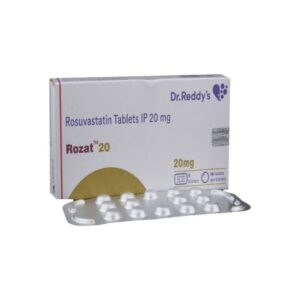

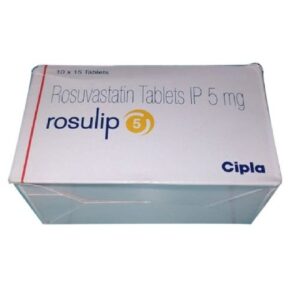
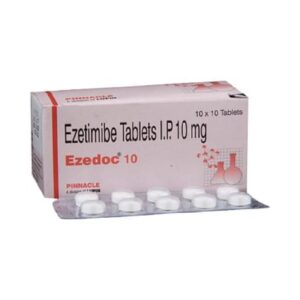
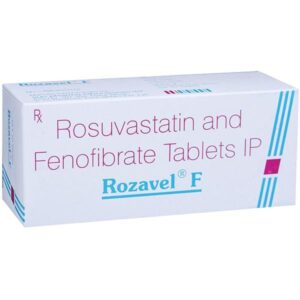
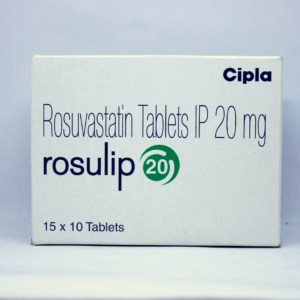
Leave a Reply
You must be logged in to post a comment.